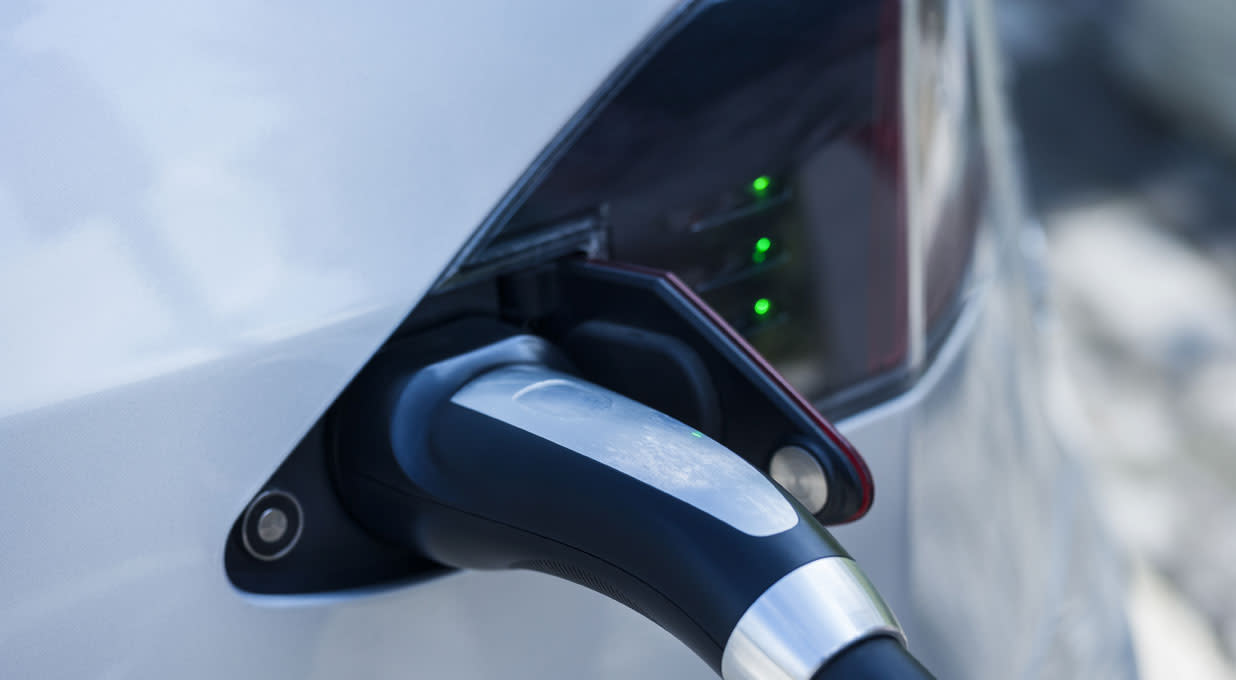Tesla’s first-quarter revenue fell 9% to $19.3bn (3% below market expectations). This comes as auto revenue dropped 20%, in part due to a Model Y refresh, offset by growth in Energy Generation (+67%) and Services (+15%). Operating profit fell 66% to $399mn.
Free cash flow of $664mn compared to an expected outflow, with the beat driven by lower capital expenditure. Tesla had a net cash balance, including leases, of $29.5bn at end of the quarter.
Volume guidance has been pulled due to the uncertain tariff and trade environment. New affordable models, expected to be stripped down versions of existing cars, are on track for production in the coming months. The Robotaxi pilot is on track for a June launch in Austin.
Elon Musk confirmed he will be reducing his time spent working with the US government from May.
The shares rose 5.4% in after-hours trading.
Our view
This was, objectively, a weak set of first quarter numbers. Yet Tesla shares have managed to ride the broader market rally seen on the day, with investors seemingly willing to overlook declining auto sales in favour of the bigger prize: an autonomous future.
This quarter was always going to be tough. For a carmaker, plant utilization is critical, and taking production offline to refresh the world’s best-selling vehicle was bound to leave a mark on the financials. But investor patience is wearing thin. Margins have been sliding for a while, and there’s no clear catalyst for a meaningful turnaround in 2025 with tariffs making the near-term outlook murky.
That leaves the investment case leaning heavily on 2026 - most likely the back half - when meaningful revenue from autonomous vehicles is expected to kick in. The opportunity is significant, and Tesla is arguably one of the only companies capable of delivering autonomy at scale. Musk stepping back from government duties should also help sentiment.
The robotaxi pilot in June is key for demonstrating that Tesla’s software/hardware blend can deliver all that’s been promised. This’ll likely start with existing models (3/Y), and we’ll get more Cybercab news as the year progresses, with plans to ramp up production next year.
It's notoriously hard to make profitable EV's, and even harder to generate free cash flow doing so. Tesla can do both, which gives it a serious edge over competition. The exception being China, where the competition is more intense. But even in the land of the dragon, Tesla is still the name consumers opt for when it falls into their price bracket.
More affordable models appear to be streamlined versions of the existing cars. It’s not quite the disruptive new form some had hoped for, but if these versions can unlock new customer segments, it could be a net win - especially for maximizing output at current facilities.
Energy storage is another promising growth area that's already adding real value. It’s a lumpy business so quarter-on-quarter trends are less important, but the longer-term growth trajectory has been impressive. As AI evolves, global power needs look to be heading one way, and Tesla's product is well placed to hopefully benefit.
We still think Tesla has one of the best opportunities to capitalise on AI in the real world, through autonomous driving and further down the road, robotics. That said, a storm of challenges from brand damage to tariff and trade drama have significantly increased near term risk – investors need to prepare for ongoing volatility.
Environmental, social and governance (ESG) risk
Most of the auto industry falls into the medium-risk category in terms of ESG. Product governance, particularly around safety, and carbon emissions from products and services are key risk drivers. Business ethics, labour relations and direct carbon emissions are also contributors to ESG risk.
According to Sustainalytics, Tesla's management of ESG risks is average.
Elon Musk has said he’ll be stepping back from government duties, but his alignment with a polarising White House and time spent away from Tesla are risks to monitor. Governance concerns also include Elon Musk's past social media posts which impacted Tesla's share price. Other areas to watch include safety concerns around its autopilot technology and the management of its workforce.
The author holds shares in Tesla.
Tesla key facts
All ratios are sourced from LSEG Datastream, based on previous day’s closing values. Please remember yields are variable and not a reliable indicator of future income. Keep in mind key figures shouldn’t be looked at on their own – it’s important to understand the big picture.
This article is not advice or a recommendation to buy, sell or hold any investment.No view is given on the present or future value or price of any investment, and investors should form their own view on any proposed investment.This article has not been prepared in accordance with legal requirements designed to promote the independence of investment research and is considered a marketing communication.Non - independent research is not subject to FCA rules prohibiting dealing ahead of research, however HL has put controls in place(including dealing restrictions, physical and information barriers) to manage potential conflicts of interest presented by such dealing.Please see our full non - independent research disclosure for more information.


